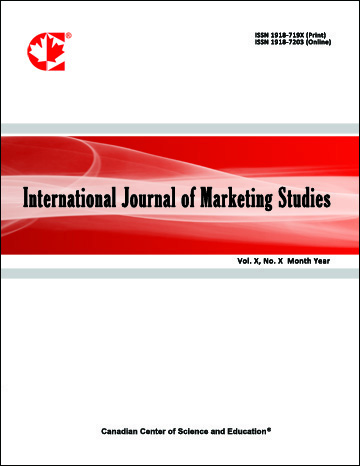Authenticity, Uniqueness and Intention to Buy Scarce Products
- Gokhan Aydin
Abstract
This study aims to find empirical evidence between personality elements (authenticity, sense of uniqueness, need for uniqueness) and individual’s preference of scarce products (PUI). A model was founded upon an extension of Snyder’s studies of uniqueness seeking behavior and psychological authenticity literature. Survey methodology was used and a questionnaire was developed using widely accepted authenticity (operationalized under three categories, namely authentic living, self-alienation and external influence), sense of uniqueness (SOU), and need for uniqueness (NFU) scales. A total of 257 valid questionnaires were obtained out of 298 fully-completed forms collected from young millennials in Turkey, one of the largest developing countries with a collectivist culture. The data was analyzed using partial least squares structural equation modeling (PLS-SEM). The results indicate that only authentic living has a statistically significant effect on individuals’ SOU. This component of authenticity also has a significant effect on consumers’ desire for scarce and unique products through SOU. Significant but moderate level direct effects of SOU on PUI and NFU on PUI were observed in the analysis. Compared to the extant literature, this study adopts a more comprehensive interpretation of uniqueness, and incorporates authenticity as an antecedent to fill a research gap.
- Full Text:
 PDF
PDF
- DOI:10.5539/ijms.v8n2p59
Journal Metrics
Google-based Impact Factor (2021): 1.34
h-index (July 2022): 70
i10-index (July 2022): 373
Index
- Academic Journals Database
- CNKI Scholar
- EconBiz
- Electronic Journals Library
- Excellence in Research for Australia (ERA)
- GETIT@YALE (Yale University Library)
- Harvard Library
- IBZ Online
- Infotrieve
- JournalTOCs
- LOCKSS
- MIAR
- PKP Open Archives Harvester
- RePEc
- ResearchGate
- ROAD
- Scilit
- SHERPA/RoMEO
- Stanford Libraries
- UCR Library
Contact
- Alyssa SunEditorial Assistant
- ijms@ccsenet.org
